Porcelain Onlay
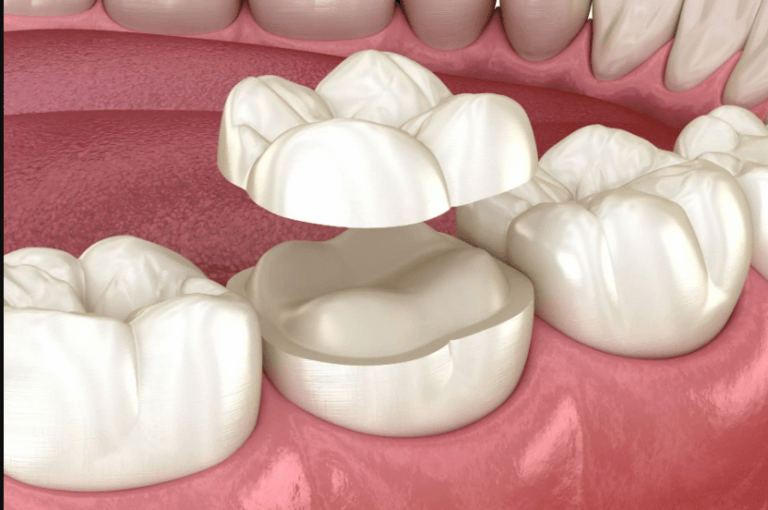
What Is A Porcelain Onlay?
A Porcelain Onlay is a custom-made dental restoration designed to repair a tooth with moderate damage or decay. Sometimes called a “partial crown,” it covers one or more cusps of the tooth but does not completely encase it like a full crown. Porcelain onlays are crafted to blend seamlessly with your natural teeth while providing strength and protection. Before deciding on whether a Porcelain Onlay are right for you, there are some things you should know:
- Who Needs A Porcelain Onlay?
- Benefits Of A Porcelain Onlay
- Alternative Treatments To A Porcelain Onlay
- How Much Does A Porcelain Onlay Cost?
- Steps In The Porcelain Onlay Procedure
- Frequently Asked Questions About Porcelain Onlays
If you have any further questions about A Porcelain Onlay or other dental services offered at Atlas Dental, please contact us.

Free phone consultation
Have questions about tooth fillings? Schedule a free phone consultation with our Toronto dentist.

5 star google reviews
Our patients love us! See for yourself why more and more people are choosing Atlas Dental for their dental fillings.

Book Emergency tooth filling
Do you think you have cavities and need an appointment? Book an emergency tooth filling online.
Who Needs A Porcelain Onlay?
Porcelain onlays are recommended for:
- Moderate Tooth Decay: When a filling isn’t enough, but a crown isn’t necessary.
- Fractured Teeth: For teeth with minor to moderate cracks or breaks.
- Worn-Out Fillings: Ideal for replacing large, failing fillings.
- Cosmetic Enhancement: Improves the appearance of misshapen or discolored teeth.
- Preventing Further Damage: Covers deep grooves or pits to protect against future decay.
It’s essential to consult with your dentist to determine whether a porcelain onlay is the right choice for your specific dental concern. If you have further questions about Porcelain Onlays, please contact us.
Benefits Of A Porcelain Onlay
Porcelain onlays offer several advantages as a restorative dental option, making them a popular choice for individuals with damaged or decayed teeth:
- Natural Appearance: They mimic the look of tooth enamel, blending flawlessly with natural teeth.
- Durability: Porcelain is strong and resists wear, lasting many years with proper care.
- Conservative Treatment: Preserves more of your natural tooth compared to crowns.
- Stain Resistance: Maintains its color even with exposure to coffee, tea, or tobacco.
- Comfortable Fit: Custom-made for a snug, secure fit.
- Holistic and Biocompatible: Porcelain onlays offer a metal-free, biologically-safe dental solution that promotes overall oral health and eliminates risk of metal allergies or sensitivities.
Every dental case is unique, so it is essential to consult with your dentist to determine whether a porcelain onlay is the best solution for your specific dental needs. If you have further questions about Porcelain Onlays, please contact us.
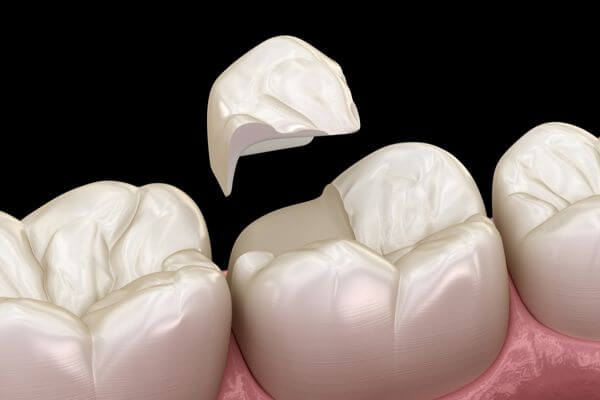
Alternative Treatments To A Porcelain Onlay
If a porcelain onlay isn’t suitable, other options include:
- Composite Fillings: Affordable and tooth-colored but less durable.
- Glass Ionomer Fillings: Releases fluoride but is best for small cavities.
- Amalgam Fillings: Durable but less aesthetic.
- Dental Crowns: Covers the entire tooth for severe damage.
- Porcelain Inlays: Similar to onlays but for smaller restorations within the tooth’s cusps.
It is essential to discuss the pros and cons of each alternative with your dentist to make an informed decision and achieve the best possible outcome for your dental health. If you have further questions about Porcelain Onlays, please contact us.
Cost of Dental Onlays
The cost of a Dental Onlay is $1349. The codes relevant to dental onlays in the Ontario Dental Association’s Suggested Fee Guide appear as follows:
Onlays, Porcelain/Ceramic/Polymer Glass (Bonded)
- 25531 – Onlay, Porcelain/Ceramic/Polymer Glass (Bonded): $1099 + Dental Lab Fee ($250)
Dental Onlays are considered a major restorative service under all dental insurance plans and may or may not be covered by your dental insurance. Be sure to find out from your dental insurance plan provider how much you are eligible for before going ahead with dental treatment. Your dentist can help you submit an predetermination to your dental insurance.
For patients without dental insurance, Atlas Dental is pleased to offer dental financing through iFinance Dentalcard. Affordable payment plans start at 7.95% for terms of 6 months to 6 years. To learn more about Dentalcard dental treatment financing, follow this link.
Steps In The Porcelain Onlay Procedure
The process of getting a porcelain onlay typically involves several steps, which are carefully carried out to ensure a precise fit and successful restoration of the damaged tooth:
- Consultation and Diagnosis: Your dentist will assess the tooth and discuss your options.
- Tooth Preparation: The decayed or damaged portion is removed, and the tooth is shaped.
- Impression: A mold of your tooth is sent to a lab for creating the custom onlay.
- Temporary Onlay: Protects the tooth while the permanent onlay is fabricated.
- Placement and Bonding: The onlay is securely bonded to the tooth and polished for a natural finish.
The porcelain onlay procedure is generally straightforward and well-tolerated by patients. Always follow your dentist’s guidance and maintain regular dental visits to enjoy the full benefits of your restored tooth and overall oral health. If you have further questions about Porcelain Onlays, please contact us.
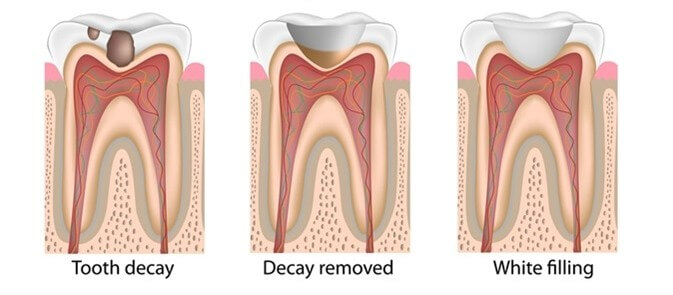
Frequently Asked Questions About Porcelain Onlays
- How long do porcelain onlays last?
With proper care, porcelain onlays can last 10–15 years or more. Regular dental check-ups and good oral hygiene are essential.
- Are porcelain onlays covered by insurance?
They are considered a major restorative service. Check with your dental insurance provider for coverage details.
- Do porcelain onlays hurt to get?
The procedure is relatively painless. Local anesthesia is used, and post-procedure discomfort is minimal.
How does a porcelain onlay differ from a crown?
Unlike a crown, which covers the entire tooth, a porcelain onlay covers only the damaged portions, preserving more of the natural tooth structure.
If you’re considering a porcelain onlay for your tooth restoration needs, don’t hesitate to contact us for a consultation. Our team will help you explore your options, answer any questions, and ensure your smile is restored with precision and care.
We also think you’ll like…
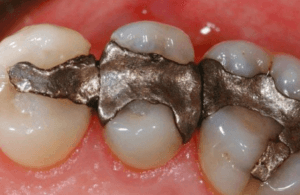
Dental Amalgam Filling Replacement
Dental Amalgam Filling Replacement What Is Dental Amalgam Filling Replacement? Dental amalgam filling replacement involves removing old amalgam (silver) fillings and replacing them with newer,

Mercury Filling Removal
Mercury Filling Removal What is Mercury Filling Removal? Mercury amalgam fillings, also known as silver fillings, have been used in dentistry for decades. However, due
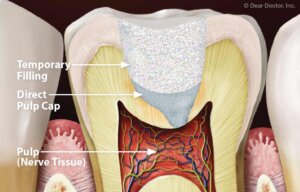
Direct Pulp Capping
Direct Pulp capping What Is Direct Pulp Capping? Maintaining dental health goes beyond daily hygiene; it involves understanding treatment options that can preserve your natural
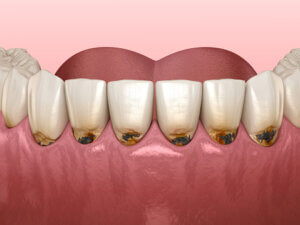
Root Cavities
Root Cavities What Are Root Cavities? Root cavities are a specific type of dental decay that form on the root surface of a tooth, typically
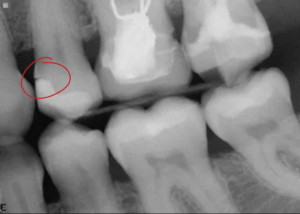
Dental Filling Open Margin
Dental Filling Open Margin What Is A Dental Filling Open Margin? A Dental Filling is a common restorative procedure that repairs damaged or decayed teeth
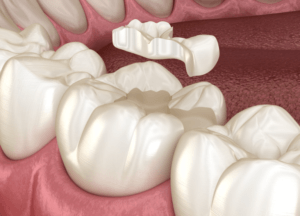
Dental Inlay
Dental Inlay What Is A Dental Inlay? A Dental Inlay is a dental restoration crafted from high-quality, biocompatible ceramic or gold, designed to fit precisely

